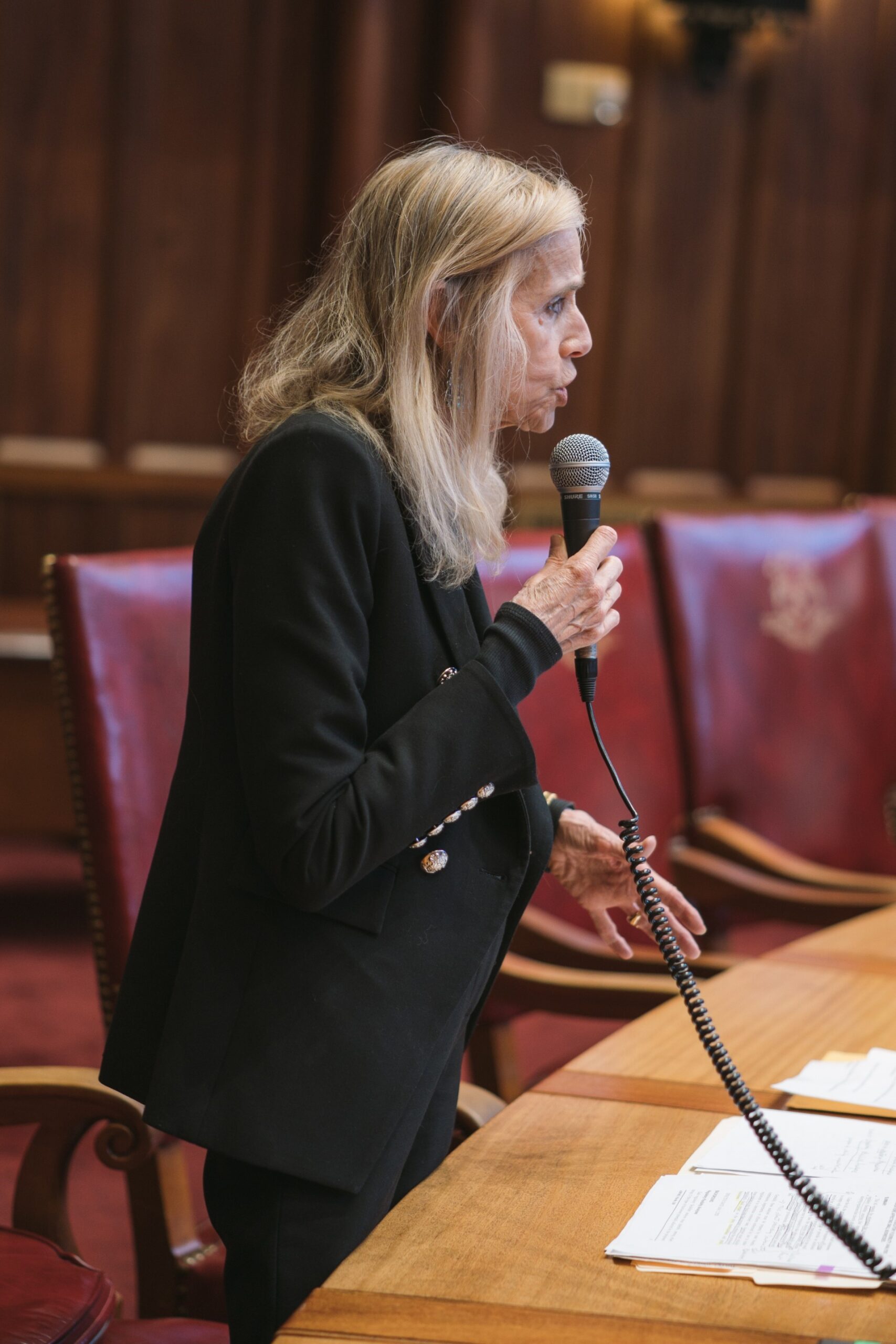
Sen. Cohen Votes for Legislation Allowing Schools to Install Safety Systems for Better Emergency Response
Inspired by high school students, bill seeks to save lives during school emergencies
In an effort to ensure Connecticut never relives the horrors of the Sandy Hook Elementary school shooting, on Wednesday the Senate passed legislation allowing for emergency response communications systems and personal emergency communication devices in Connecticut schools.
This legislation was inspired by two Staples High School students from Westport, Elijah Falkenstein and Zander Bauer, who proposed the idea to the Committee on Children, of which State Senator Christine Cohen serves as vice-chair.
The students reached out after learning a similar personal emergency communications system in a Georgia school allowed for faster response by local police during a shooting. Local law enforcement said activation of the system at Apalachee High School in Winder, Georgia in September of 2024 likely saved lives, EducationWeek reported at the time.
Senate Bill 1216, “An Act Concerning School Emergency Response Systems,” would allow for the state’s school security infrastructure competitive grant program, signed into law in 2013 after the Sandy Hook Elementary School shooting, to be used for schools to purchase emergency response communications systems and personal emergency communication devices for school personnel.
“I often say that the very best legislation comes from our constituents, and this bill is a fantastic example of that,” said Sen. Cohen. “In the aftermath of one of the most tragic school shootings in our country’s history, Connecticut vowed to do better. Since then, we have enacted strong gun safety legislation and have equipped our schools to respond if the worst case scenario should occur. With this legislation, Connecticut schools will have the ability to install highly responsive technology and keep our students, teachers and staff safe. Thank you to these students and to my Chair, Senator Maher for her leadership on this important proposal.”
Emergency response communications systems and personal emergency communication devices would likely resemble ones used in other schools across the country. Most prominently, the system at Apalachee High School saw teachers carry devices that served as panic buttons; when activated, those buttons would inform law enforcement that an emergency was happening on campus, Reuters said.
A shooting at that school that killed four was likely to have led to more violence if not for the activation of the system, police said at the time. Upon activation, police were on site within two minutes and the shooter was taken into custody within six minutes of initial alerts.
According to the Atlanta Journal-Constitution, such systems can activate general alerts and emergency alerts; the former stays within the school for medical emergencies or other incidents not requiring outside assistance, while the latter, for more serious events, would trigger flashing lights and a lockdown on a school campus. Most uses of the systems, more than 98%, remain within schools.
While these systems can be expensive, a fiscal note for the bill noted that there is currently an unallocated bond balance of $20 million for school security programs, which would be able to fund a number of installations.
This bill received strong support in public testimony, with the Connecticut Education Association, Connecticut Association of Independent Schools and Connecticut Catholic Public Affairs Conference among the organizations endorsing it.
The bill previously passed the Committee on Children with a unanimous 17-0 vote; it now heads to the House for further consideration and potential passage. If passed by the House, the bill proceeds to Governor Lamont’s desk to be signed into law
For Immediate Release
Contact: Garnet McLaughlin – Garnet.McLaughlin@cga.ct.gov – 860-304-2319







